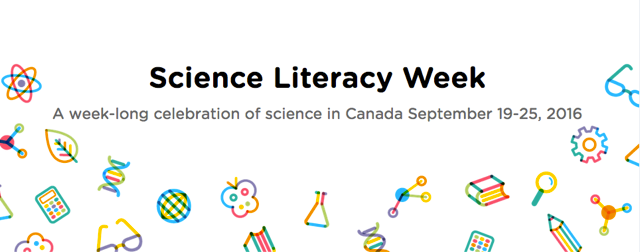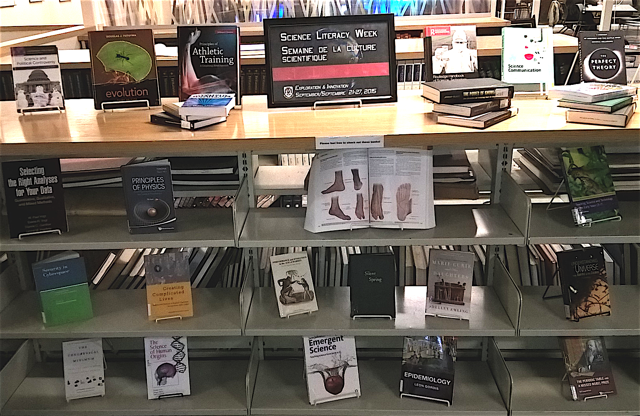By Jesse Hildebrand, Guest Editor & Founder of Science Literacy Week
Get ready for fun and discovery as Canada’s third annual Science Literacy Week takes place September 19–25! It aims to showcase just how excellent Canadian science and science communication are from coast-to-coast-to-coast.
And they really are. If you want to learn about the universe, the world around you or anything else you can think of, we have a wealth of top-notch facilities and organizations that can help. Museums, science centres, zoos and aquariums, outreach groups like Let’s Talk Science and Actua, and the Royal Astronomical Society of Canada, not to mention thousands of libraries nationwide, are showcasing science to the public.
Effective science communication opens up a world of understanding. Science can seem overly technical or difficult and often removed from our everyday lives. Nothing could be further from the truth. Whether it’s our global communications network, innovations in transportation and energy, incredible advances in medicine or big news issues like immunizations, genetically modified organisms or climate change, it is more important than ever that we have a good understanding of science.
Use #scilit16 to share stories, pictures, or anything else that highlights your love of science.
Great science communication and events can do that. They make jargon understandable and break down big issues into relateable stories. They can also showcase the magic and wonder of science and encourage people to learn more. Peer into a microscope to see a million organisms in a drop of water, gaze at Saturn’s rings through a telescope, crack open a rock to find a fossil – these activities help us see the world in a new light. They pique our curiosity and encourage us to learn more.
I’ll admit that as the founder of Science Literacy Week, I didn’t start out with such a lofty goal. I had just finished my degree and was eager to share my love of science. I approached the University of Toronto libraries and asked them why all libraries seemed to stock their main book displays with popular fiction. For one week, wouldn’t it be nice to see some books by the likes of Sagan and Sacks instead of Twilight and The Hunger Games? Maybe highlighting those books would encourage people to read something a little different and produce a spark of excitement and inspiration.
Science books take centre stage on a library’s display shelves for at least for one week a year.
Photo courtesy of J. Hildebrand
They took me seriously and within the year Science Literacy Week included events in four library systems across Toronto. By 2015, through encouraging collaborations between science groups, and reaching out to many more, there were nearly 300 activities happening in 40 cities across the country – from nature walks to astronomy nights, science demos to public talks and everything in between. If it engaged the public and celebrated science, it was a part of the week.
You can find every event online at scienceliteracy.ca.
This year, with 150+ partners nationwide and major support from the National Science and Engineering Council of Canada and Indigo Books, Science Literacy Week looks to be even bigger. You can find every event online at scienceliteracy.ca. We will post the most up-to-date info on Twitter (@scilitweek), and participants can contribute to the conversation (#scilit16). The week is meant to be a way for Canadians everywhere to share their love of science. Use #scilit16 to share stories, pictures, or anything else that highlights your love of science. You can also get involved by asking questions at info@scienceliteracy.ca.
So go check out an event, play with circuits, gaze at the stars, attend a lecture, or take out a book. I hope to see you there!





